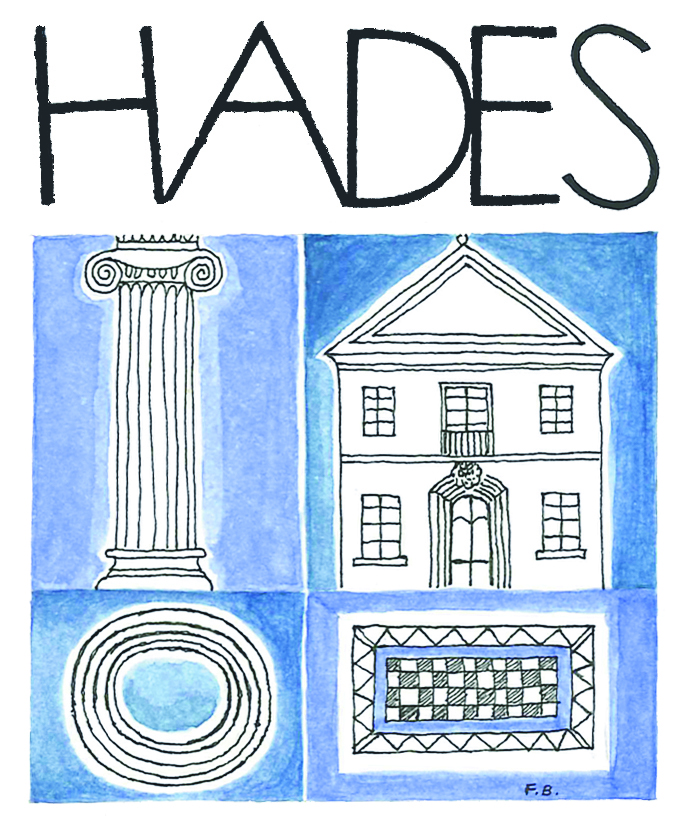A |
B |
C |
D |
E |
F |
G |
H |
I |
J |
K |
L |
M |
N |
O |
P |
Q |
R |
S |
T |
U |
V |
W |
X |
Y |
Z |
Mickael BOUALI

E-mail : mickael.bouali@gmail.com
Axe de recherche Ausonius
- Textes, contextes, pouvoirs
Thèmes de recherche
La Sicile antique reste un sujet d'étude encore trop délaissé au regard de sa richesse, du fait des rigides découpages disciplinaires entre histoires grecque et romaine voire d'une périodisation qui oriente le regard, pour la partie basse de notre sujet, vers l'Orient hellénistique au dépend d'un bassin ouest de la Méditerranée, néanmoins théâtre de profonds bouleversements.
Pourtant, à partir du VIIIème siècle avant J.-C. se développe en Sicile une présence grecque croissante qui fait de cette île un pôle important de l'Hellade aussi bien sur le plan qualitatif que quantitatif. Cette thèse questionne dans un premier temps le processus qui conduit à la formation d'une identité propre aux hellénophones de Sicile, les Sikeliotai. En effet, avant même qu'il n'existe une identité grecque globale, de multiples entreprises coloniales conduisent la Sicile à se peupler d'une foule provenant d'horizons divers, dont le principal point commun est la maîtrise d'un dialecte grec. Trois siècles plus tard, le discours d'Hermocrate au congrès de Géla, dont Thucydide se fait l'écho, affirme explicitement l'existence d'une identité propre aux Sikeliotai, constitué alors en groupe. Cette réflexion se concentre donc sur le chemin qui mène à ce résultat à l'issue d'une analyse diachronique de l'identité sicéliote.
Dans un second temps, cette thèse poursuit l'étude de l'ethnicité des Sikeliotai en interrogeant l'articulation des différentes identités ethniques dont peuvent se réclamer les divers groupes qui peuplent une Sicile divisée. A ce titre, la prise en compte d'événements majeurs comme l'expédition athénienne de 415, le règne de puissants tyrans sicéliotes au Vème et au IVème siècle, les nombreuses invasions carthaginoises ou encore la conquête romaine de l'île est à même d'affiner notre perception du fait identitaire sicéliote. Enfin, cette thèse se propose également de poursuivre la réflexion sur les outils conceptuels dont dispose les études identitaires à travers l'examen de notions clés comme celle d'ethnicité, appliquées aux sociétés anciennes.
Ancient Sicily remains a subject of study too neglected in terms of wealth, because of the rigid disciplinary divisions between Greek and Roman histories or even a periodization that focuses on the Hellenistic East at the expense of the western Mediterranean Sea, which nevertheless experienced profound changes.
Yet, from the eighth century BC. grew in Sicily increasing Greek presence that made the island an important center of Hellas both qualitatively and quantitatively. This thesis initially questioned the process leading to the formation of an identity to Greek speakers of Sicily, the Sikeliotai. Even before there was an overall Greek identity, multiple colonial enterprises lead Sicily to be populated by a crowd from different backgrounds whose main common point was the mastery of a Greek dialect. Three centuries later, the speech Hermocrates in congress of Gela, which Thucydides echoed, explicitly affirmed the existence of a distinct identity to Sikeliotai composed then in a group. So this discussion is focused on the path that leads to this result after a diachronic analysis of the siciliot identity.
In a second step, this thesis continues the study of ethnicity Sikeliotai questioning how works the various ethnic identities which can claim the diverse groups that inhabit a divided Sicily. As such, the consideration of major events like the Athenian expedition of 415, the reign of powerful Siciliot tyrants in the fifth and fourth centuries, numerous Carthaginian invasions or the Roman conquest of the island is able to refine our perception of siciliot identity fact. Finally, this thesis also proposes to continue discussions on the conceptual tools that identity studies through the review of key concepts such as ethnicity, applied to ancient societies.
- Sicile antique ; Sicéliote ; Sikeliotai ; Hellénicité ; Ethnicité ; Identité ; Grèce ancienne ; Punique ; Colonisation ; Grecs d'Occident ;
- Ancient Sicily; Siciliot; Sikeliotai ; Hellenicity; ethnicity; identity; Ancient Greece; Punic; colonization; Western Greeks
Cursus académique
- Capes : Histoire-Géographie (2013)
- Doctorat (Université Bordeaux Montaigne) : Sikeliotai, réflexion sur l'ethnicité des hellénophones de Sicile. (2020) sous la direction de Christophe PEBARTHE
- Master 2 (Université Bordeaux Montaigne) : Les Grecs au prisme de l'ethnicité (2010-2011) sous la direction de Christophe PEBARTHE
Parcours professionnel
- Professeur au collège Jean Monnet de Saint-Ciers sur Gironde (2013-2014)
- Professeur au collège Gay-Lussac de Colombes (2014-...)
Opérations archéologiques
2011-2012 : Fouilles programmées du Palais Gallien, Bordeaux - Dir. David Hourcade, Institut Ausonius.
2011 : Traitement et numérisation des archives privées de Robert Etienne pour l’Institut Ausonius.
Dernière mise à jour : 2021-07-01 09:28:26













